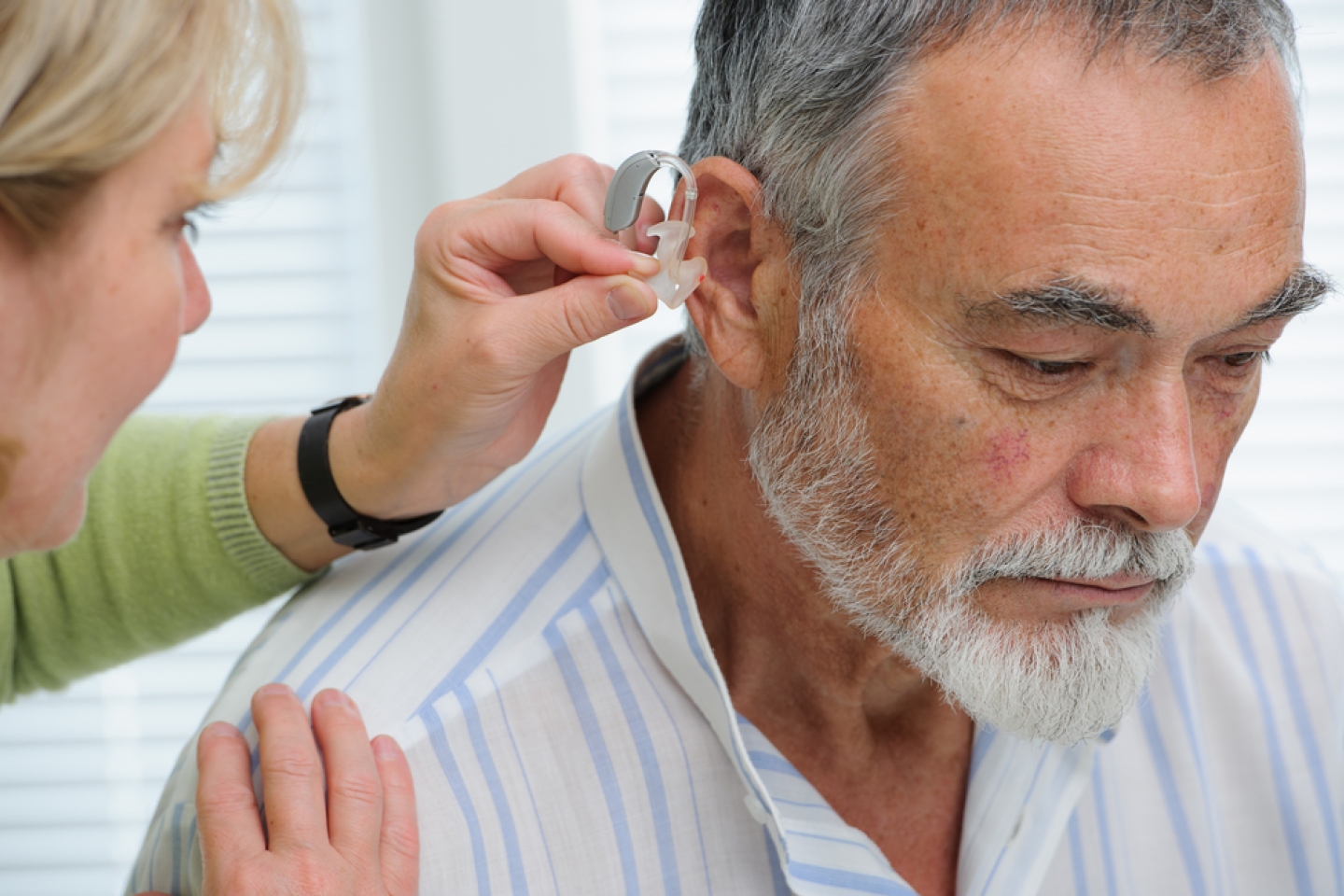Over-the-Counter Hearing Aids: What Your Audiologist Wants You to Know

On October 17, 2022, over-the-counter (OTC) hearing aids became available at pharmacies, big box stores and some audiology offices across the country. That means consumers now have access to an affordable hearing aid option, one that may be beneficial for individuals 18 and older with mild-to-moderate hearing loss who have trouble understanding speech in difficult listening environments.
Read on for answers to your FAQs.
OTC vs. prescription hearing aids
OTC hearing aids are “one-size-fits-most” devices that can be purchased without a medical exam, prescription or professional fitting. You can set up the controls and programs they provide, and your audiologist may be able to offer guidance on device settings. However, OTC devices are not programmable in quite the same way as traditional, “prescription” hearing aids, which are dispensed by a licensed audiologist or hearing aid dispenser. Prescription hearing aids are programmed at each frequency based on an audiological evaluation, during which a patient’s hearing thresholds are measured, and information is gathered regarding the integrity of the outer, middle and inner ear.
How do OTC hearing aids differ from direct-to-consumer products such as PSAPs and Hearables?
Personal sound amplification products (PSAPs) are meant for people with normal hearing who want to amplify soft sounds or sounds at a distance, such as birds chirping. PSAPs are not medical devices, and unlike OTC hearing aids, they are not regulated by the Food and Drug Administration (FDA).
Hearables are situation-specific devices and are not meant to be used all day for communication purposes. They connect wirelessly to your TV, phone or laptop and may include volume control allowing you to increase or decrease the sound. Sometimes you can adjust the pitch as well. Hearables also are not regulated by the FDA.
Will an OTC device work for me?
If you are 18 or older with perceived mild-to-moderate hearing loss, you may benefit from an OTC hearing aid. You can complete a formal hearing test to see whether you meet the criteria for their use, but it is not required. You decide whether you need the device and whether you perceive any benefit.
How much does the device cost?
The cost will vary, as it is set by the manufacturer or distributor.
Why are OTC hearing aids less expensive than prescription hearing aids?
OTC hearing aids use simpler technology than their prescription counterparts. Additionally, there are no professional services that come with OTC devices.
Can the OTC device be repaired or returned?
The manufacturer is required to provide information regarding how to handle repairs and returns. The FDA’s guidelines do not require OTC hearing aids to be returnable. Therefore, it’s important to ask the retailer or distributor about their specific return policies.
Further advice from the audiologists at Weill Cornell Medicine
Be aware that not all hearing loss is the same. People with complex medical needs or more severe hearing loss may require more customized solutions. They may also need the professional services that are often bundled with the purchase of prescription hearing aids. These include:
- Counseling
- Selection of appropriate style and technology level of devices
- Programming and fit adjustments
At the first sign of a problem, have your hearing checked—and continue to do so regularly, once a year or even more often if you sense a change in your hearing or balance.
Individuals with a history of ear drainage, sudden hearing loss, ear abnormalities or other issues may not be good candidates for OTC hearing aids. If you have one or more of these conditions, seek a consultation by scheduling an appointment with an otolaryngologist at Weill Cornell Medicine's Department of Otolaryngology.
If you would like to learn more, please watch the recording below of our special seminar, recorded on Wednesday, December 14, 2022, featuring members of Weill Cornell Medicine's audiology team. They discussed hearing loss, recent FDA guidance on hearing aids, and more.
